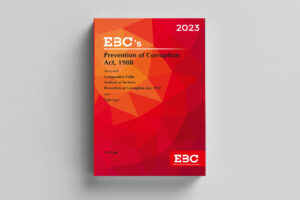Bombay High Court: A writ petition was filed under Art. 226 of the Constitution, before the Division Bench of Jitendra Jain, J*., and AS Chandurkar, J., seeking to quash Maharashtra Administrative Tribunal’s 2013 order confirming suspension of the petitioner for indulging in corruption during his employment with the Sales Tax Department. Two penalties of suspension and withholding of increment were imposed, wherein the petitioner had applied for relief under two separate petitions, one of which had already been finally dismissed in 2015 by a Co-ordinate Bench of the Court.
The Court was of the view there was no justification in approaching the Court to challenge the order of 2013 after a period of 5 years i.e., in 2018. It was further held that the re-agitating of a matter finally dismissed is not permissible by law.
Background
The petitioner had joined the Sales Tax Department as a Clerk in 1981 and was prosecuted for demanding illegal gratification under the Prevention of Corruption Act, 1988 in 2001, and was acquitted therefrom in 2011.
Before the conclusion of corruption proceedings against the petitioner, the respondents initiated disciplinary proceedings against the former, whereby the former was found guilty and a punishment of permanent withholding of one increment was imposed. Subsequently, the petitioner appealed before the Appellate Authority, which was dismissed.
Aggrieved by this dismissal of appeal, the petitioner challenged the order of suspension and withholding of increment in two separate applications before the Maharashtra Administrative Tribunal (“Tribunal”). The Tribunal passed an order in 2013 giving relief to the petitioner only insofar as withholding of increment was concerned and confirmed the order of suspension post remanding it to the Original Authority.
The petitioner contended that the suspension period should be considered as a period spent on duty and consequently the salary allowance and other monetary benefits for the suspension period should be computed, but the contention was rejected by the Tribunal. The order of Tribunal vis-à-vis upholding the suspension, was challenged before the Court by the petitioner through a writ petition in 2015, which was already dismissed in finality by the Coordinate Bench of the Court.
The petitioner filed the instant petitioner in 2018, five years after the 2013 order of the Tribunal was passed, and it was contended that the delay was due to a mistake by their advocate in filing a petition before the Court against both the penalties imposed by the Tribunal, and prayer for condonation for delay. In this light, the petitioner had submitted an Additional Affidavit to support his prayer.
The petitioner had also submitted that, he had been acquitted in criminal proceedings for corruption, and since the issue raised in the criminal proceedings and the disciplinary proceedings were the same, hence the latter proceedings should be quashed.
Court’s Analysis and Decision
The Court noted that in the remand proceedings, the respondents had confirmed the withholding of the increment and had also reiterated that the petitioner would face suspension from 2001 to 2011. The petitioner did not challenge the 2013 order confirming his suspension until 2018 via the instant petition..
The Court rejected the petitioner’s reasons for delay in challenging the Tribunal’s order passed in 2013 . Furthermore, the Court also stated that the Tribunal had confirmed the suspension order, and there was no reason for the petitioner to believe that such an order was impending final dismissal.
The Court observed that it was well-settled that disciplinary proceedings and criminal proceedings stood on different footing and held that there was no infirmity in the suspension order made by the Tribunal in 2013.
Vis-à-vis the petitioner challenging Tribunal’s order confirming the suspension, through a writ petition before the Co-ordinate Bench in 2015, the Court stated that any attempt by the petitioner to re-agitate a matter which was finally dismissed by a Coordinate Bench in 2015 would amount to intra-court appeal from an order of Coordinate Bench of same strength to another Bench, which is impermissible in law.
The Court was of the view that merely because the suspension sentence was reiterated in the remand proceedings dealing with withholding of increment, the same would not mean that the issue of suspension order had not reached finality when the Tribunal confirmed the same. Consequently, the writ petition was dismissed.
[Shivaji Baburao Avhad v. The Special Commissioner of Sales Tax, Maharashtra State, Mumbai, 2024 SCC OnLine Bom 1155, Decided on: 23-04-2024]
*Judgment by Justice Jitendra Jain
Advocates who appeared in this case :
Advocates for the Petitioner: RM Haridas, Advocate, Swapnil R Patil, Advocate
Advocate for the Respondents: AR Deolekar, Additional Government Prosecutor








